Ondrej Markus
Entrepreneur in ed-tech, building the future of education as a founder and CEO at Playful.
I write about the future of education, designing learning games, and running a startup.
I'm a generalist, introvert, gamer, and optimizing to be useful.
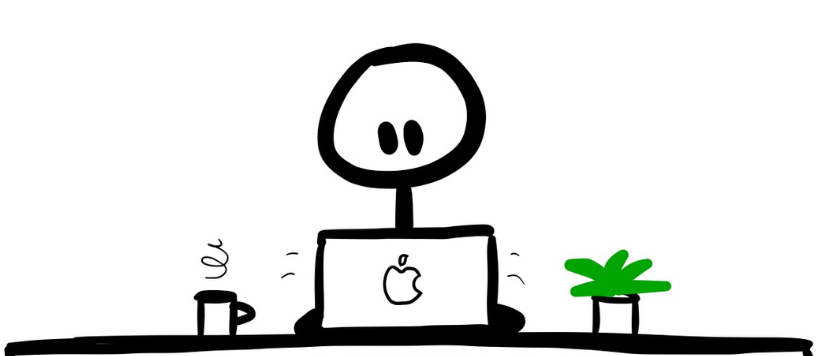
Rational Artist - The ideal way to work
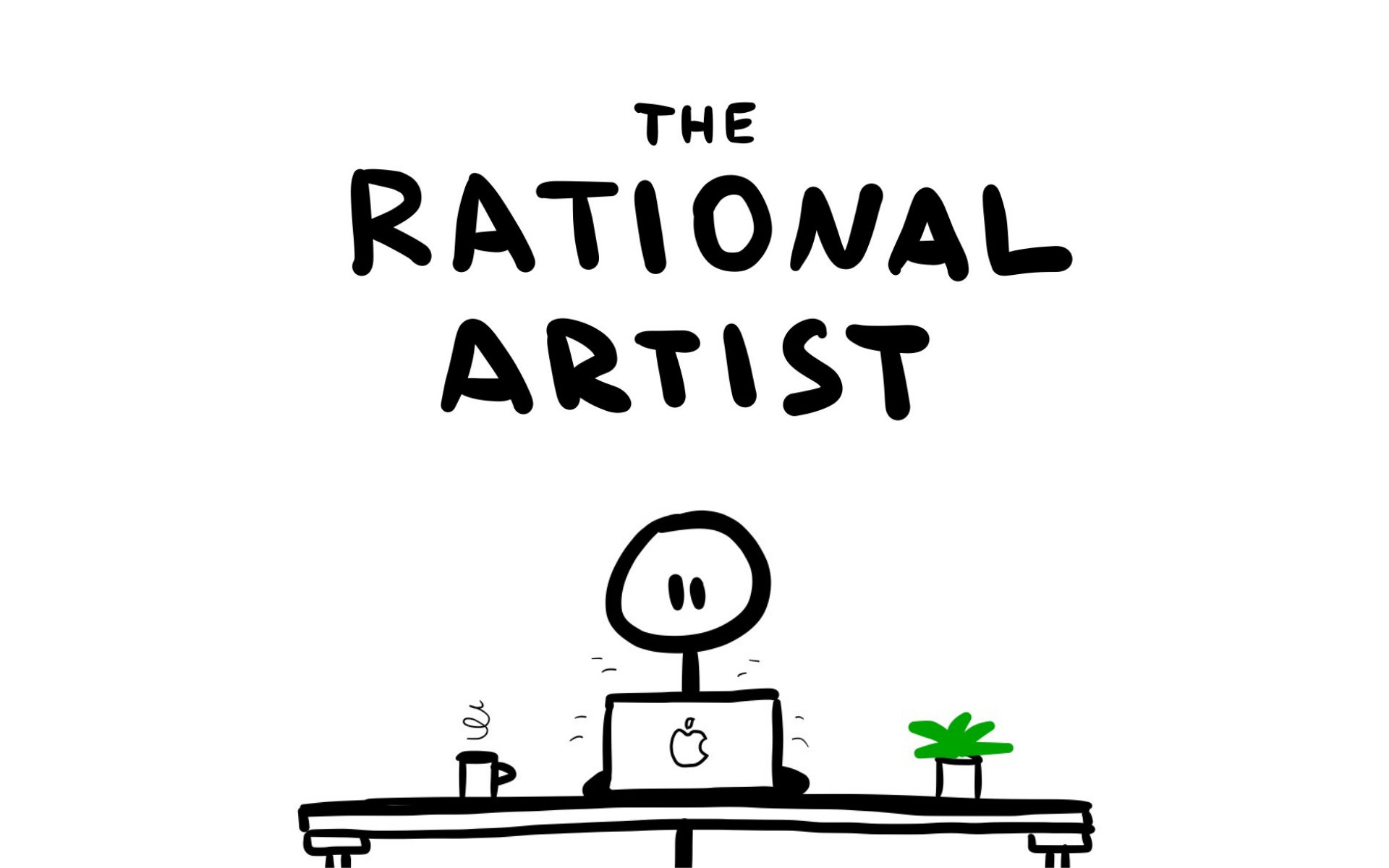
Imagine yourself doing the best work of your life.
What does it look like?
The Rational Artist represents what it looks like to me. His mindset and skills make his approach the most playful, fulfilling, effective, and meaningful way to work I can imagine.
I dreamed him up while writing my ‘How to Find Freedom at Work’ guide. He is the model of someone who solved the two problems of finding freedom at work.
Problem 1: Money – Money solves survival. You need enough money, so you don’t have to constantly worry about food, shelter, and other external needs. Although, it’s also an attention trap if you don’t know how much is enough. That’s why the goal isn’t maximizing money. It’s having enough money so you can stop thinking about it.
Problem 2: Joy – Joy solves motivation. When you enjoy your work, it’s fulfilling on its own without extra rewards. But when you don’t enjoy what you do, you get bored, procrastinate, and lack meaning. Joy is the solution to internal needs.
The Rational Artist continually solves both the problem of money and joy. He is doing what he enjoys while making enough money.
Let’s deconstruct how he thinks, what he does, and how he does it. I’ll go at it piece by piece because these words (Rational + Artist) are both loaded with different meanings.
Be Rational
So, what do I mean by ‘Rational’?
In this context, being rational means making good decisions based on self-knowledge and understanding how the world works.
It’s a balance of intuition and logic. It means knowing what you want and navigating the world to get it. This creates a sustainable way to focus on work without disruptions, including enough income to solve your money problems.
Be an Artist
Now, let’s pick apart the ‘Artist’ bit.
In my books, an artist is anyone who uses skill as a tool of self-expression. She creates art. And I mean art in the broadest sense.
Good art is about saying something. It’s about expressing ideas through skill. And it doesn’t matter whether it’s writing poems, closing complicated business deals, or parenting triplets. Anything can be artful if it involves skill and creative intent.
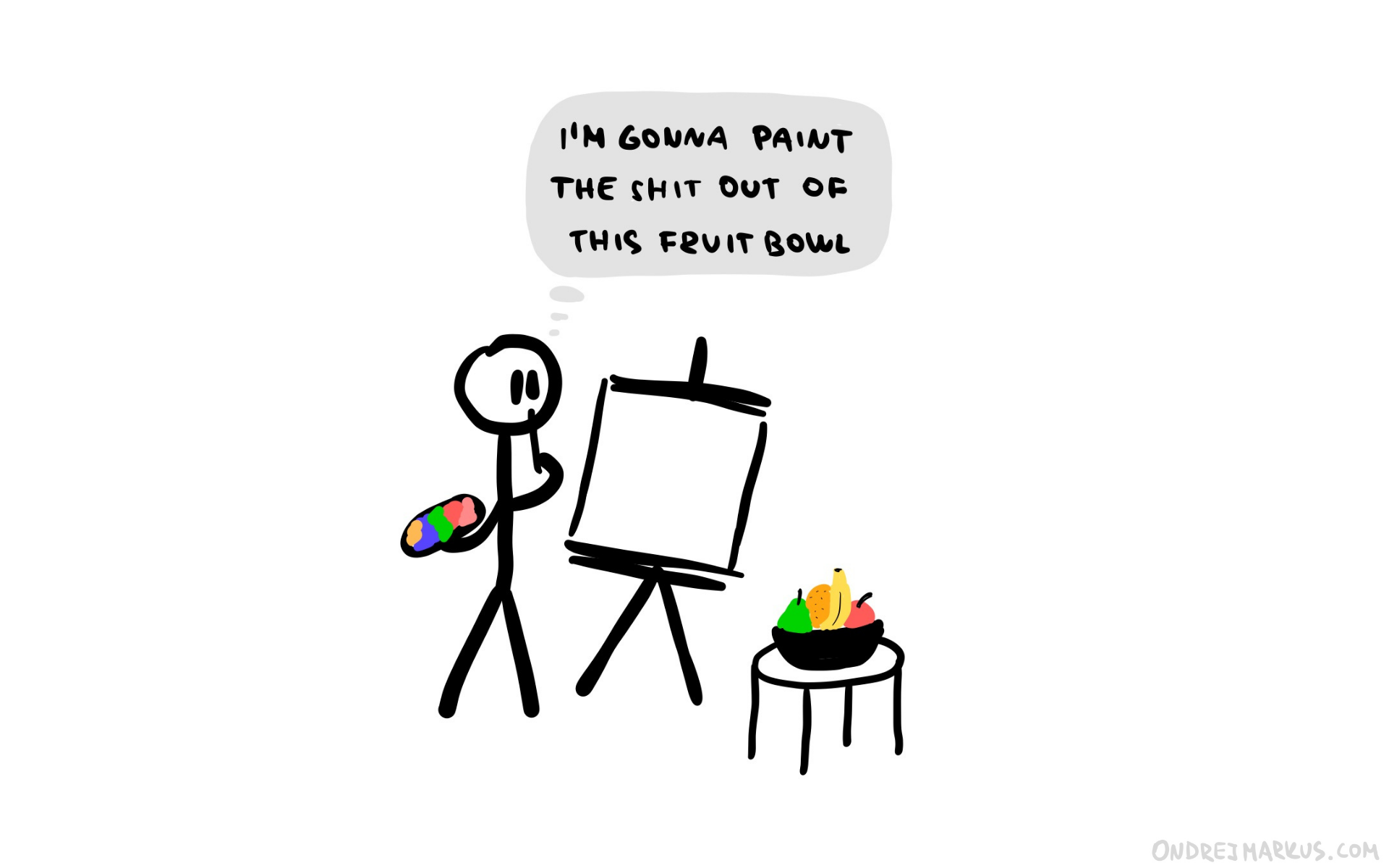
Painter Artist
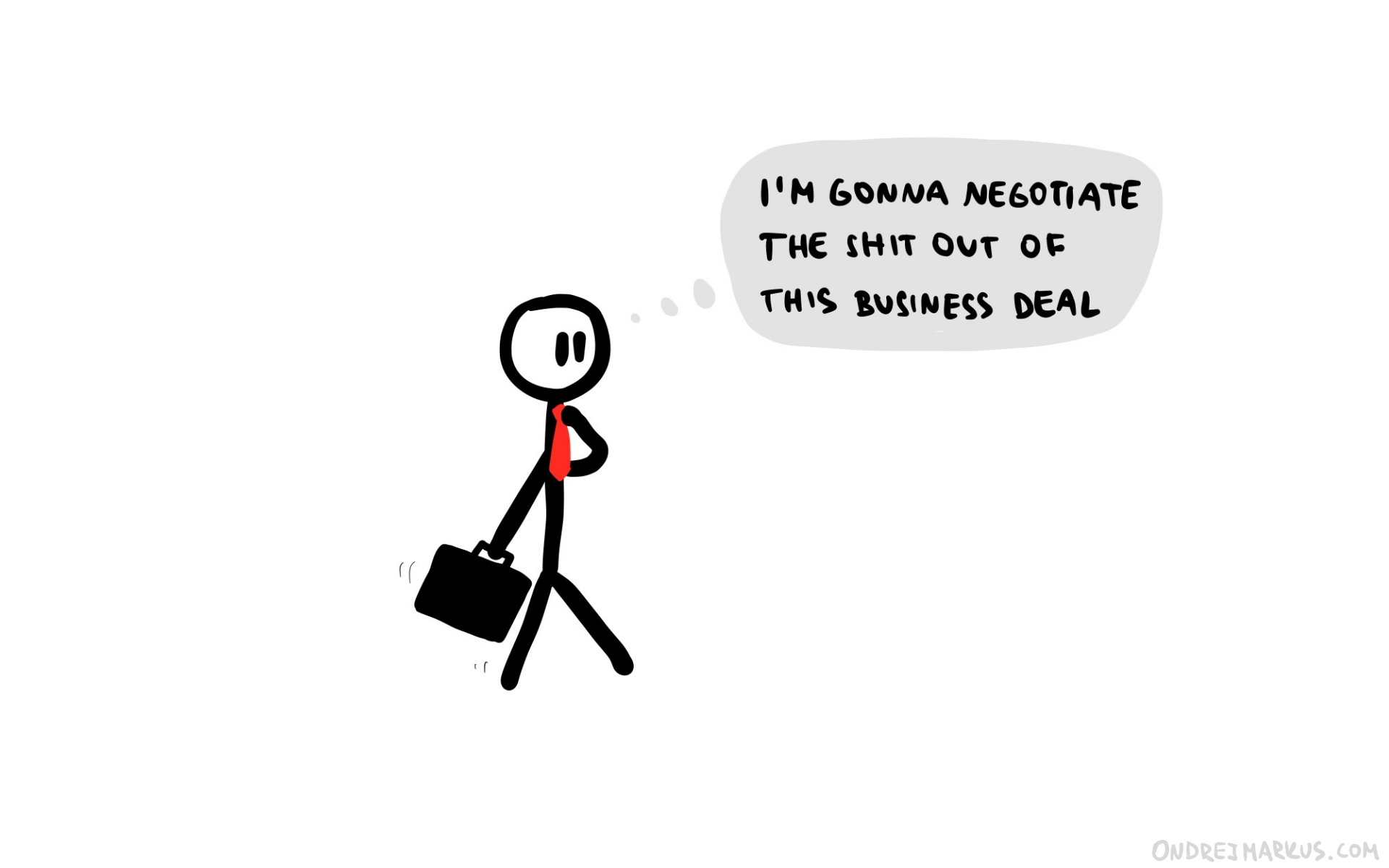
Business Artist
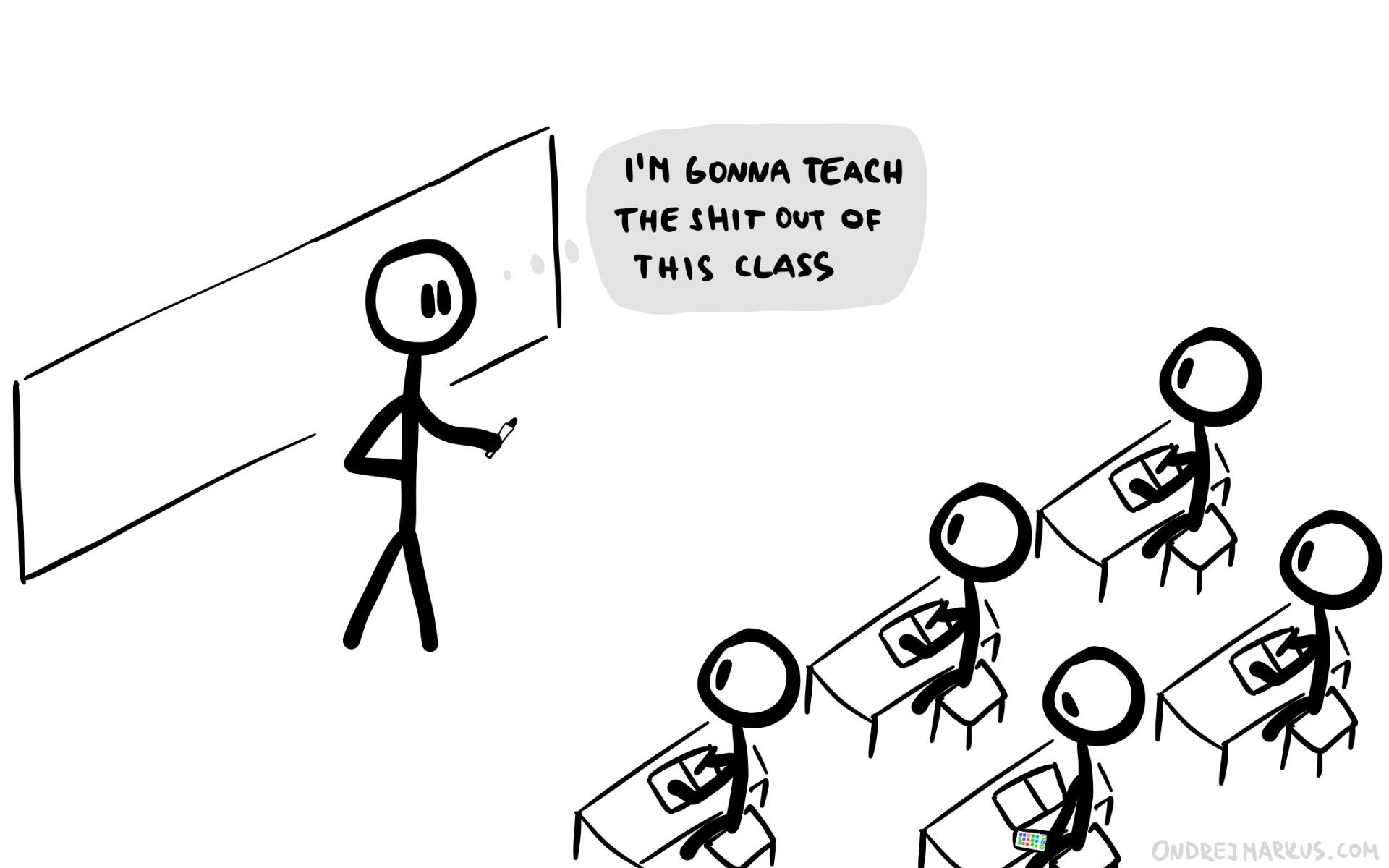
Teacher Artist
An artist does her work because she enjoys the craft, not because it’s popular or profitable. To her, work feels like play.
Of course, anything anyone does is an act of self-expression in some way. The difference is, the artist’s work isn’t swayed by external factors. She does what is authentic to her self-expression. She cares about her creative integrity.
Rational Artist
Being rational and being an artist might sometimes clash with each other. And that’s okay. That’s why we need both of them. They form a balance.
Everything in life is an act of balance. There are two mutually exclusive things, but you need both, so you dance between them.
You want to make enough money, so you don’t have to think about it. But, at the same time, you want to do only what you enjoy doing. Finding this overlap in life is a tricky task.
The Rational Artist adopts this ambiguity. He knows how to play the game of money, status, and influence. He chooses the games he needs to play to be effective, plays them well, and ignores the rest to focus on his work. He embraces his chosen constraints and makes them a part of his art.
But he always optimizes on doing the best work possible – doing what he enjoys while creating the most value for the world.
This idea of the Rational Artist paints a picture of what freedom at work means to me – doing what you enjoy while making enough money, so you don’t have to think about it.
Next, mainly for the fun of it, let’s explore the contrasts of the Rational Artist.
I want to explore two other types of workers and why they struggle.
Starving Artist
First, we keep the artist part but remove rationality.
The opposite of rationality in this context isn’t stupidity – it’s “not knowing how to play the game well.” And by “the game,” I mean the game of how the world works.
In my mind, the less effective (and frequently frustrated) counterpart of the Rational Artist is the Starving Artist.
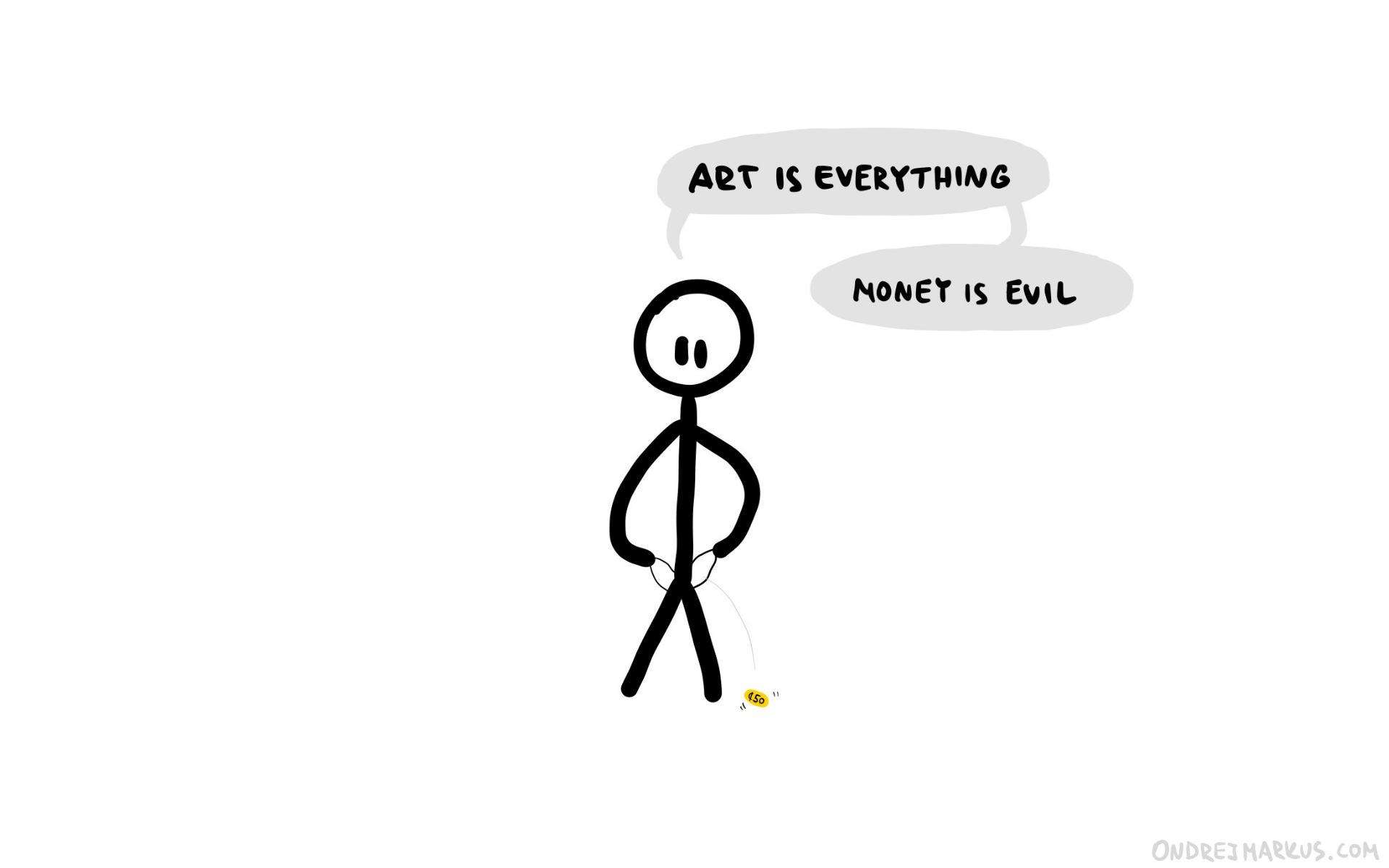
The Starving Artist
She wants to focus on her art but is continually haunted by not having enough money to achieve peace of mind.
That’s the biggest difference between these two artists. The Starving Artist doesn’t know how to effectively make a living with her craft. She is so consumed by creating good art she completely ignores money.
As a result, she’s eventually either forced to compromise her work for profit or waste her time on unrelated jobs just to survive.
Because of her negative experience with money, she might be tempted to think that money is evil. That being rich is bad, and it’s not something she wants anyway.
She misses the point. Money isn’t bad or good. It’s neutral. Making money in bad ways or spending it on bad things is what makes it bad. I just said “bad” too many times. Anyway, the point is: Money is neutral. What matters is how you get it and use it.
The best-case scenario is making money by doing what you’d do anyway (your art). You just need to be careful about not compromising your work for the money. What this means is up to your consciousness. You will know when you’re screwing your work for extra profit.
In the end, the Starving Artist’s attitude against money makes her spend more time thinking about it because her financial problems are constantly causing troubles.
Her inability (or unwillingness) to play the game well hinders her potential to do what she cares about the most – doing the best work she can. This makes her unfree and unhappy.
Rational Robot
In this variation, we keep the rational part and move away from working like an artist.
What’s the opposite of an artist? To me, it’s a robot.
But I don’t mean it literally. It’s not a machine. Instead, imagine a person who has no agenda except for what someone else tells him (programs) him to do. He has no vision, no purpose. His work is empty of meaning.
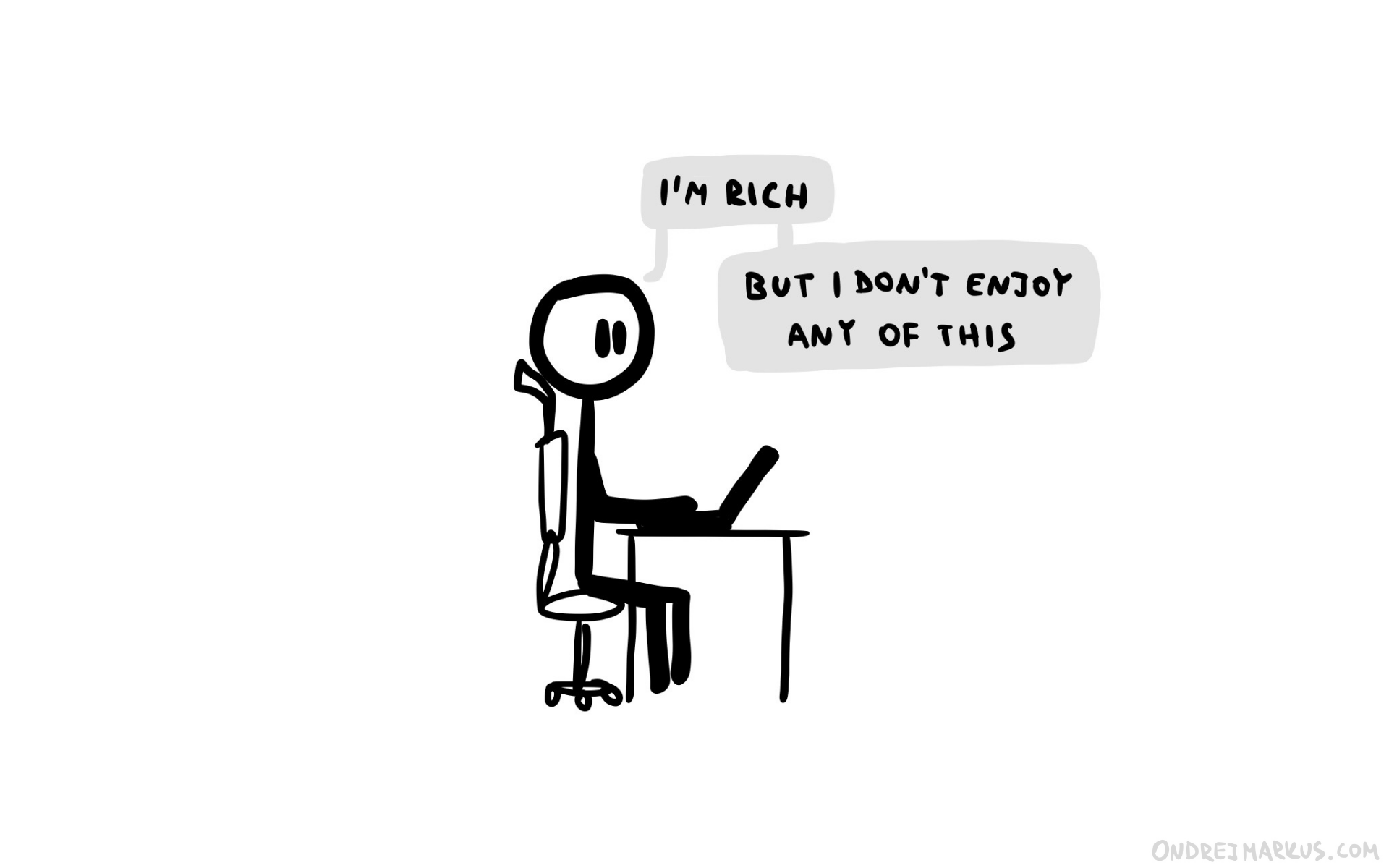
The Rational Robot
He understands himself and the games of the world well enough to make rational decisions. He’s a good worker. Very productive and practical. Managers love him and promote him often.
But whatever he does, it’s not fulfilling for him. It feels empty because he doesn’t enjoy it. He might even hate most of what he does. His actions are just a means to an end – an act of survival by making more money, advancing his status, and bolstering his ego.
He plays the game well, but he’s losing terribly on the inside nonetheless. Nothing he does is enough. There’s no joy, no art, in anything he does.
Starving Robot
Let’s not even do this one. It’s too painful to imagine this is probably the default state for most people all over the world.
I hope we can change that soon enough.
How to use this idea
Well, this article is mostly a thought exercise on what is the ideal way to work.
But, if this idea resonates with you, you can use it to improve your work-life. Here are some questions to help you identify where you are in the quadrant of artists and robots:
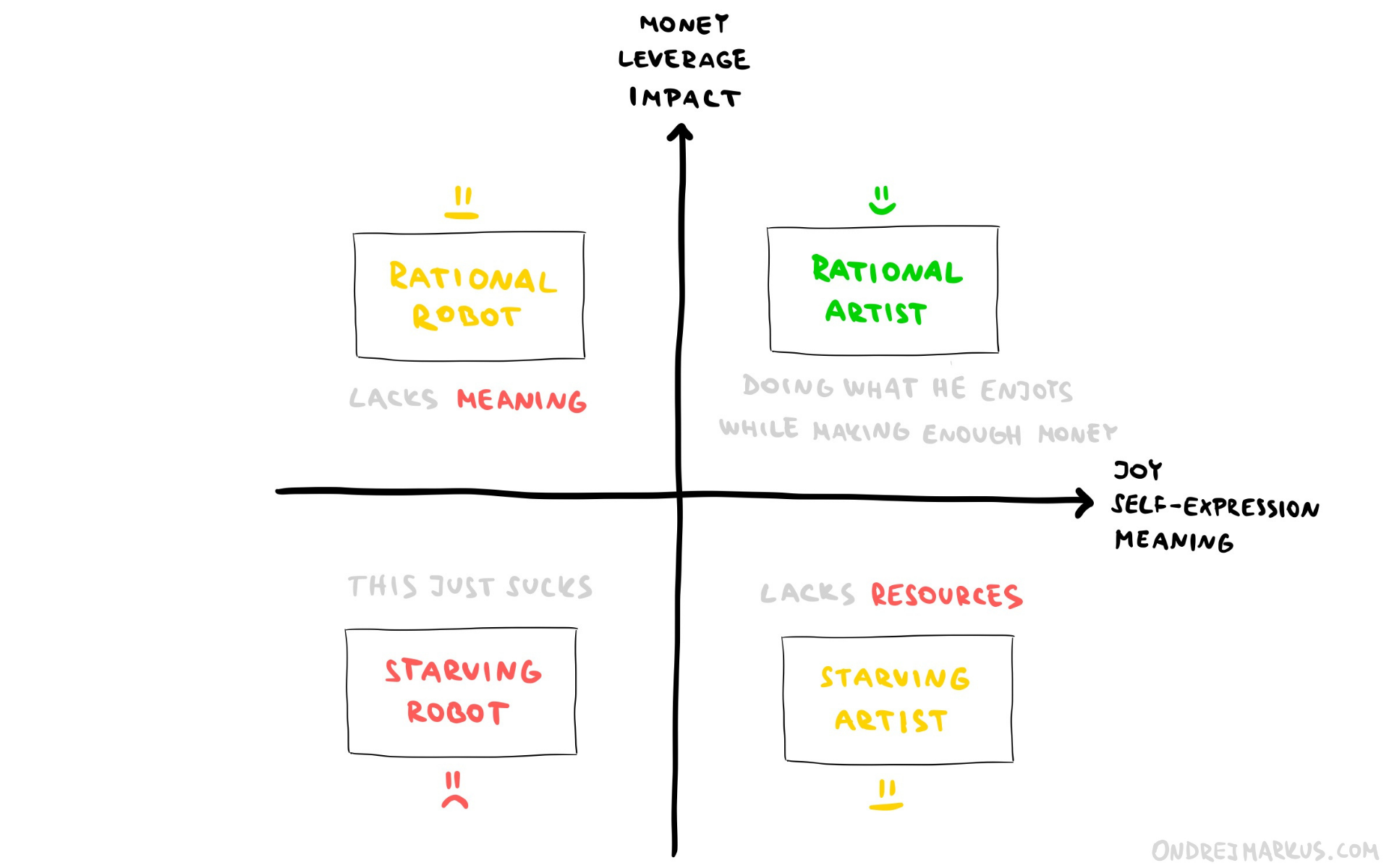
The Quadrant of Artists and Robots
- Do you make enough money?
- Do you have the resources to create the impact you want?
- Do you enjoy your work?
- Is your work meaningful to you?
The point here is to identify where you are on the quadrant and what you need to solve next to work like the Rational Artist.
Don’t worry if you’re not there. I’m not there either on most days.
It’s a never-ending process you can’t solve once and forever. We have to continually respond to how we and the world changes.
The best thing you can do is find satisfaction in the process of becoming a Rational Artist. Enjoy playing the game.
My favorite Rational Artists
Lastly, I want to mention some of my favorite examples (most alive, some dead).
(It’s actually impossible to say who is or isn’t a Rational Artist because it’s totally subjective to their inner experience. So my list is more like “some people who seem like Rational Artists to me because I’ve seen enough of their work and attitude, and I like what they do.")
- Alan Watts – Philosopher, Writer
- Tim Urban – Writer, Educator
- Elon Musk – Engineer, Designer
- Seth Godin – Writer, Marketer
- Matt Lees – Writer, Video producer
- Quintin Smith – Writer, Video producer
- Neil Gaiman – Writer, Storyteller
- Richard Feynman – Physicist
- Kevin Kelly – Writer, Futurist
- Louis C.K. – Comedian, Writer
- Derek Sivers – Writer, Programmer
- Maria Popova – Writer
- Dan Harmon – Writer
- Quentin Tarantino – Film-maker
- Kurtzgesagt – Writers, Animators
- Exurb1a – Writer, Video producer